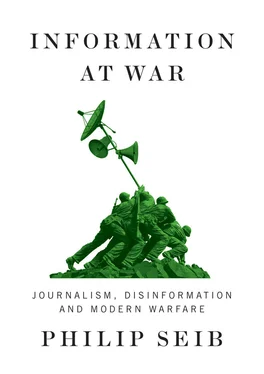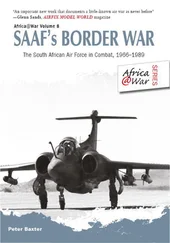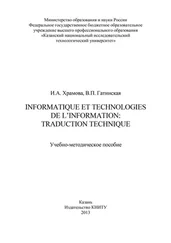War is a sad, inescapable reality. Its persistence as a societal phenomenon underscores the need to devise better ways to prevent conflict or bring it to a quick end. Such responsiveness depends in part on information flowing sufficiently swiftly and broadly for it to stir the scruples of states and their citizens. In 1938, British Prime Minister Neville Chamberlain abandoned Czechoslovakia to Nazi Germany rather than intervene in what he called “a quarrel in a faraway country between people of whom we know nothing.” 4Today, more than at any previous time, the technology-enabled availability of information ensures that there should be no people “of whom we know nothing” and whom we abandon. Even if people are living in remote villages of Sudan or Myanmar, information about them – perhaps even appeals coming online directly from them – can promptly reach much of the world.
The way information is delivered to its audience is crucial. Eloquent words always have power, but perhaps not as much as when they are accompanied by sound or images. The impact of information also depends in part on the context in which the information is received. What makes information memorable? What aspects of it stir people? What elements of information open pathways to taking action and influencing policy?
This book will take us up to the present day … and then look beyond. But to begin, it is important to consider several past cases of the relationship between information and war.
“This is London.” With those words, CBS correspondent Edward R. Murrow began his reports from the British capital in 1940 and 1941. London was under the aerial siege, known simply as “the Blitz.” Determined to batter England’s defenses prior to launching a cross-Channel invasion, Adolf Hitler’s Luftwaffe massed as many as 1,000 aircraft on a single raid over London and other cities. The Blitz resulted in approximately 43,000 British civilians killed and another 139,000 wounded.
Beginning in September 1940, the relentlessness of the Blitz accentuated its impact – attacks night after night for two months. Afterward, there was more bombing, less predictable in its timing but no less ferocious, that continued until May 1941. Later in the war, there would be still more attacks on London, including by the Germans’ devastating V-1 flying bombs and V-2 rockets in 1944 and early 1945.
But the Blitz during the early years of the war was the real test of Britain’s ability to survive. The breadth of the devastation was stunning. During the first six weeks of the Blitz, 16,000 London houses were destroyed, 60,000 were seriously damaged, and 300,000 people needed temporary housing. One Londoner in six was homeless at some point during the nine months of the Blitz. 5The world had never seen anything like this massive use of air power against civilians.
For many Americans, “It has nothing to do with us” was a prevailing sentiment as the Blitz began. The United States had bailed out European allies during the Great War less than 30 years earlier and most Americans had little interest in again sending their soldiers across the ocean. Let the Europeans clean up their own mess. Many Americans were merely spectators, intent on keeping their distance.
Radio, however, narrowed that distance. Murrow was determined that his countrymen must not ignore battered Britain, because if Britain fell, the United States would inevitably have to face Hitler on its own. He brought the war into their living-rooms with vivid and sometimes poetic descriptions of what was going on around him. He reflected Londoners’ scorn for the enemy; the bombing, he said, “makes headlines, kills people, and smashes property, but it doesn’t win wars … . Things will have to get much worse before anyone here is likely to consider it too much to bear.” 6Londoners’ toughness was a theme that ran through many of Murrow’s broadcasts. He said: “I’ve seen some horrible sights in this city during these days and nights, but not once have I heard man, woman, or child suggest that Britain should throw in her hand. These people are angry.” 7
Virtually all of Murrow’s reports gave his listeners a sense of what it was like to be in the midst of the Blitz. In one broadcast, he spoke of what he had seen during “several hours of observation from a rooftop” while the bombing was under way, and in another he said: “The air raid is still on. I shall speak rather softly, because three or four people are sleeping on mattresses on the floor of this studio.” He told of the resolve of firefighters, police officers, railroad workers, and others who combed rubble for the dead and the still-living, and dealt with unexploded bombs. “Military medals,” said Murrow, “are getting rather meaningless in this war. So many acts of heroism are being performed by men who were just doing their daily job.” 8
He also noted little things. He described the “rainbow bending over the battered and smoking East End just when the ‘all-clear’ sounded.” He told of standing in front of a smashed grocery store and hearing a dripping inside. He investigated and found that “two cans of peaches had been drilled clean through by flying glass and the juice was dripping down onto the floor.” And in the background, there were symbols of resilience and continuity: “The tolling of Big Ben can be heard in the intervals of the gunfire.” He was trying, he said, to give a sense of “the life in London these days – the courage of the people; the flash and roar of the guns rolling down streets where much of the history of the English-speaking world has been made.” But, he added, “These things must be experienced to be understood.” 9
For those not physically present during the attacks, receiving information was a way to “experience” the Blitz. Connecting information and experience can be done through vivid storytelling. Murrow convinced British authorities to allow him to broadcast live while the bombing was going on. He painted word pictures while the war provided the background soundtrack: “Four searchlights reach up, disappear in the light of a three-quarter moon … . Just overhead now the burst of the anti-aircraft fire … The searchlights now are feeling almost directly overhead. Now you’ll hear two bursts a little nearer in a moment. There they are! That hard stony sound.” The next night: “I’m standing again tonight on a rooftop looking out over London, feeling rather large and lonesome … . As I look out across the miles and miles of rooftops and chimney pots, some of those dirty-gray fronts of the buildings look almost snow white in the moonlight here tonight.” He saw a rooftop spotter and said, “There are hundreds and hundreds of men like that standing on rooftops in London tonight watching for fire bombs, waiting to see what comes out of this steel-blue sky.” 10
That kind of reporting underscored a difference between broadcast and print. Although a newspaper or magazine reporter could eloquently write about this same scene, there was special dramatic power about the mix of voice and background sounds – sirens, explosions – arriving in faraway homes. The impact of this was heightened by its novelty; the world had not yet become accustomed to real-time news delivering the sounds of major stories as a matter of course. (Not many years later, video would be wedded to these sounds, enhancing impact even more.) For the American audience, secure in its isolated cocoon, these reports stirred imagination and, perhaps, conscience.
The domestic political backdrop of Murrow’s reports was a contest between strong isolationist sentiment and President Franklin Roosevelt’s recognition that Britain would not survive without American help. But FDR’s primary concern as the Blitz began was his own reelection in November 1940. He was seeking an unprecedented third term and faced an unconventional Republican opponent in Wendell Willkie, a one-time Democrat who was not wholly persuaded by the isolationist mantra of the Republican leadership. Robert Sherwood observed that Willkie’s relatively moderate foreign policy stance “tended to remove the isolationist–interventionist issue from the campaign (at least until the final days).” 11In those final days, opinion polls showed that Willkie – increasingly aggressive in labeling Roosevelt a warmonger – had cut into the president’s lead in the race. Several days before the election, Roosevelt tried to put the issue to rest in a Boston speech: “I shall say it again and again: your boys are not going to be sent into any foreign wars.” (This pledge included a typical FDR sleight of hand. As he told his aide Sam Rosenman, “If somebody attacks us, then it isn’t a foreign war, is it?” 12)
Читать дальше












